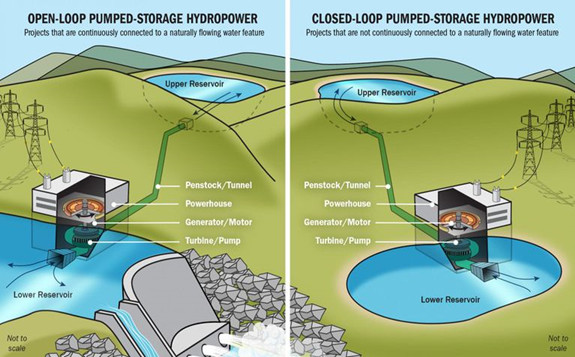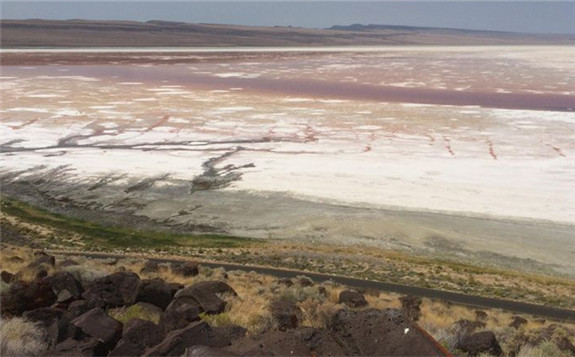The power company has asked federal regulators for permission to study whether its proposed renewable energy project could work in Lake County.
Power company PacifiCorp is pitching a pumped storage hydropower project in Lake County that, if built, could become a significant source of renewable energy in the region.
“Pumped hydro,” as it’s sometimes called, has garnered attention from clean energy advocates as part of the path to decarbonization.
The systems work like giant batteries. They typically involve two reservoirs, one at a higher elevation than the other. Water flows from the upper reservoir into the lower reservoir through hydroelectric turbines similar to those used on the Northwest’s many river dams, generating power.

When power is more abundant, that water in the lower reservoir can be pumped back into the upper reservoir to start the power generation cycle over again.
Supporters of pumped hydro note that it’s more consistent than other forms of renewable energy like wind and solar, which only generate power when the wind blows and sun shines.
PacifiCorp in October filed for a preliminary permit with the Federal Energy Regulatory Commission to study the feasibility of a pumped hydro project in the Crooked Creek area near Paisley.
PacifiCorp spokesperson Drew Hanson said in an email that energy storage solutions like pumped hydro will become more important to the company as new renewable energy sources come online.
The company has proposed building a 52-acre upper reservoir and 50-acre lower reservoir, powerhouse and pump station, plus a nearly 20-mile transmission line connecting the system to a substation in Lakeview.
The project would initially fill each reservoir by diverting water from the Chewaucan River via a new, 8.7-mile pipeline.
If built, the Crooked Creek pumped hydro project could generate an estimated 1,460 gigawatt-hours annually. That’s enough to power more than 130,000 average American homes for a year.
Obtaining a preliminary permit from FERC is the first step in a long licensing process for a pumped hydro project. It gives PacifiCorp priority in licensing such a project at the proposed location. It does not allow them to do any construction or “perform any land-disturbing activities.”
Two groups have filed motions to intervene in PacifiCorp’s permit application, which establishes them as stakeholders in the process: the Oregon Department of Environmental Quality and the Oregon Natural Desert Association.
A DEQ spokesperson said in an email that the agency files motions to intervene on all hydroelectric projects in the state. That allows them to comment on the proposal throughout the process.

ONDA executive director Ryan Houston said in an emailed statement that the conservation group is focused on protecting the Chewaucan River and nearby Lake Abert, a key pitstop for migratory birds. The group fears diverting more water from the river, which feeds the lake that’s been drying up summer after summer.
“Ongoing water withdrawals, compounded by the effects of climate change, have put significant stress on this system, threatening the long-term viability of this important high desert ecosystem,” Houston said.